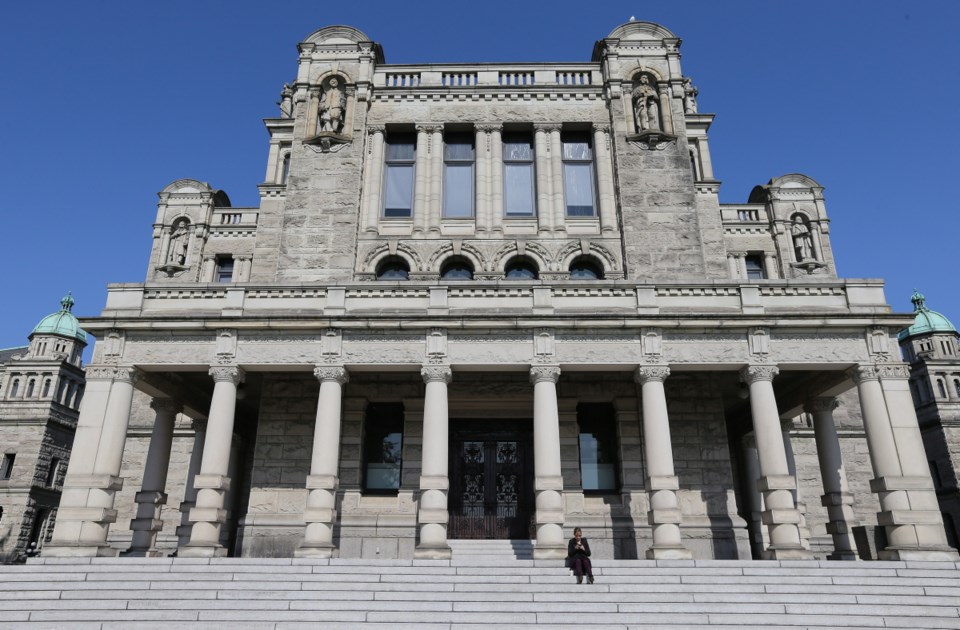The sustained record low unemployment has been cause for monthly celebrations by government for several years.
Nearly every month-end tally brings a congratulatory news release about the number of new jobs, and the comparatively scanty number of people still looking for work.
But there’s a side-effect to high employment. It forces some low-wage sectors desperate to find staff to look offshore to find workers. And the downside to that established practice is how poorly some of those people are treated.
The NDP has been cheering high employment just like the B.C. Liberals did. But they are about to take a different tack on dealing with the downside. Legislation is coming his fall that will hold employers who hire temporary foreign workers to a much higher standard than currently exists.
Labour Minister Harry Bains confirmed it Monday, after a news conference at the legislature by several organizations that have been working for years to improve the circumstances for temporary foreign workers in B.C.
It was held to “urge” the government to move. But the word is out that the move is coming.
So it was more to validate and set the stage for what’s coming.
The advocacy groups say they are busy on a daily basis dealing with reports of abuse and exploitation of such workers.
B.C. takes in the second-highest number of temporary foreign workers among provinces. There were about 22,000 new slots for them in B.C. approved by the federal government last year.
Ottawa legislates and regulates the practice, but provinces have a role in enforcing employment standards once they are here. B.C. is considered to be well behind the pack in upholding standards and pursuing complaints.
Erie Maestro, of Migrante B.C., said the province dragged its feet on offering protection, but the group is hoping the changed government can match legislation six other provinces have passed, “and maybe even do better.”
The group wants firms that recruit the workers to be licensed, and a provincial registry created so there can be much more control and monitoring of their conditions.
That idea was in Bain’s mandate letter from Premier John Horgan in July 2017, and he said it is coming soon.
The registry would be a bare minimum. Advocates say provincial authorities are more or less in the dark about what happens to the workers once the federal government approves companies’ applications to bring them in.
Government material repeatedly stresses that the workers should not be charged and should not have to pay anyone fees to come to Canada.
But Natalie Drolet, of the Migrant Workers Centre, said they see people being exploited by unscrupulous recruiters and fraudulent immigration consultants.
“The going rate being charged for a job in B.C. is now the range of $20,00 to $30,000. This is unacceptable.”
Many of the workers are uncertain of their rights and frightened to speak up, for fear of retribution. There’s a six-month time limit on filing complaints. And provincial enforcement is largely complaint driven, as there are few staff to do proactive investigations, the advocates say.
The federal government can investigate violations and levy fines. It maintains a list of violators who have been fined or prohibited from bringing in any more workers. But when workers want to recover wages or fees, they have to go to provincial employment standards offices. That’s where the protections fail.
B.C. Federation of Labour president Irene Lanzinger said temporary foreign workers “harvest our food and look after our children and our seniors and in many cases they get exploited. They don’t have the same rights as other workers.”
Citing the list of recurring complaints about pay shortages and work conditions, Lanzinger said: “It’s time we took away the rights of those employers to employ workers. … Find out who they are, track their behaviour and make sure they don’t have the right to bring in workers and to exploit them.”
Bains said all the issues will be addressed when the bill arrives.
“Unlike the B.C. Liberals who ignored it, we are not going to ignore it. Every worker deserves the same rights and protection.”



